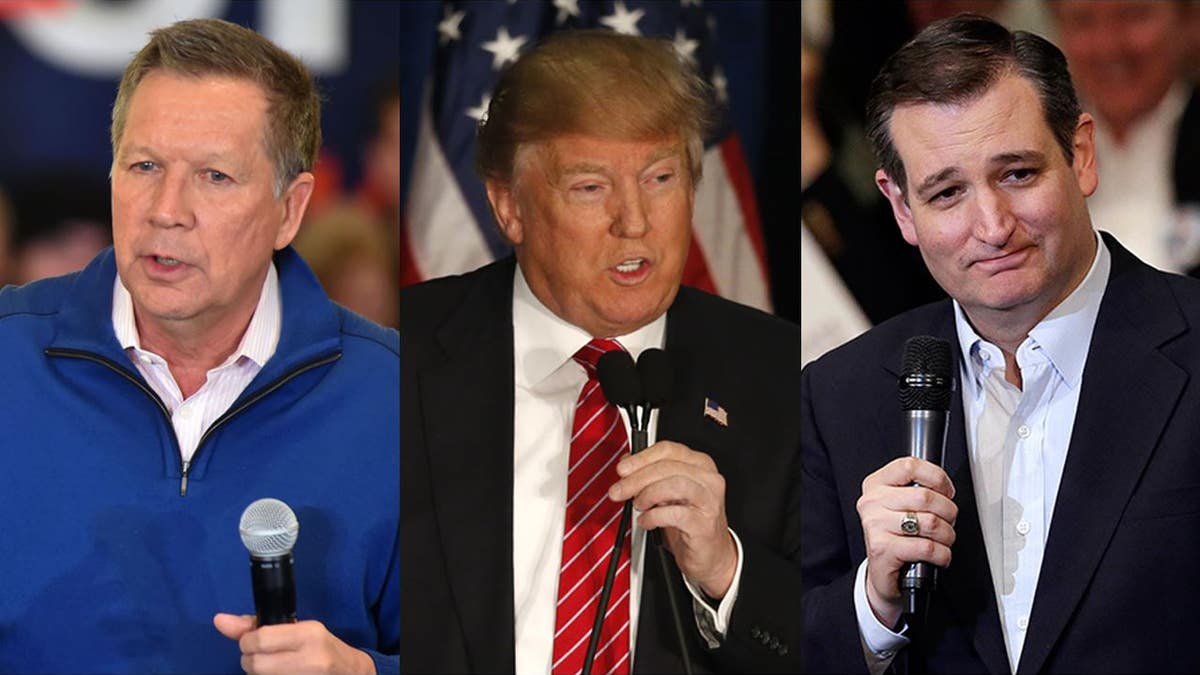
Donald Trump is a mess, Ted Cruz is slippery, John Kasich is no conservative; it’s no wonder that GOP grandees are whispering about drafting House Speaker Paul Ryan or some other popular Republican in the case of a contested convention. Would Republicans gather round Ryan or another newcomer if he were somehow crowned in Cleveland?
For many – in a heartbeat. Exit polls in Wisconsin showed one third or more of GOP voters would not support the Republican ticket if either Trump or Cruz become the candidate. More than half the party’s members describe themselves as liberal or moderate on either social or fiscal issues; Ted Cruz is not their candidate. Donald Trump’s appeal, meanwhile, may be waning after several goofs and a big loss in Wisconsin. For many who voted in early primaries, buyer’s remorse could set in.
While many voters might wish for another choice, getting one is a long shot. First, party officials would have to change or do an end-run around Rule 40, which says that for his (or her) name to be placed in nomination, a candidate “shall demonstrate the support of a majority of the delegates from each of eight (8) or more states, severally, prior to the presentation of the name of that candidate for nomination.” Also, the candidate must present a “certificate evidencing the affirmative written support of the required number of permanently seated delegates from each of the eight (8) or more states”.
A week before the party gathers to nominate its candidates in Cleveland, the Rules Committee will meet and the 112 men and women selected for that role, representing all U.S. states and territories, will set in place the terms of the 2016 convention. In 2012, Romney’s supporters insisted on Rule 40, so as to preclude Rand Paul’s participation. In 2008, the standard had been 5 states; before that, there was no such hurdle.
The delegates meeting before this year’s convention could decide to abandon Rule 40, and thereby open the convention to all comers. However, with Trump and Cruz delegates controlling the selection of the Rules Committee, such a decision (which would disadvantage both of them) is unlikely.
Circumventing Rule 40 is possible. The certificate attesting to the support of 8 states must be submitted only one hour before the nomination. In other words, if a state’s delegates become convinced that no candidate is capable of winning a majority, then after the first or second ballot, depending on the state’s own rules, those representatives could throw their support behind a candidate who has not run in the primaries. Some 5 percent of the delegates are “unbound” for the first ballot; for the second, some 59 percent are released and for the third, 80 percent are free to change their vote. An outside candidate could produce a certificate attesting that the delegates of eight states are on board, and could then be nominated.
Messy, for sure, but navigable in case of the convention becomes deadlocked.
After losing in Wisconsin, Donald Trump needs to win some 65-70 percent of the remaining bound delegates to arrive in Cleveland claiming victory – higher than his average to date. This primary season has had more than its share of surprises, but odds are that Mr. Trump will fall short of the magic 1,237 number. As a result, he will try to attract enough delegates to take him over the top on the first ballot.
Given the billionaire’s troublesome relationship with the party, and with Ted Cruz having aggressively courted delegates for many months, Trump is unlikely to succeed. He may try to strike a deal with John Kasich whose hundred-plus delegates could take Trump to victory, or even reach out to Marco Rubio, who continues to hold onto his 172 delegates and is allowed to do so since he has officially only “suspended” his campaign, as opposed to ending it. It is hard to imagine either one throwing their lot in with Trump, but this is the year to think the unthinkable.
After all, Donald Trump desperately needs guidance on how our government works; if nominated, he would have to pick a running mate who could help him navigate the convoluted back alleys of Congress. Rubio or Kasich could explain his unlikely joining up as performing a national service.
Still, it seems more likely that Kasich and Rubio might join forces with Cruz. Depending on what the Rules Committee decides neither name will probably be placed in nomination. Thus, their delegates will be up for grabs and could put Cruz over the top.
If Trump comes close, but does not win, his supporters will cry foul, and likely threaten to sit out the race. Ditto Cruz. Exit polls in Wisconsin indicated that a solid majority (56 percent) think the nomination should go to the candidate who has won the most delegates – even if he falls short of the 1,237 majority. It will be, for sure, a donnybrook.
The only saving grace is that at the end of the day Republicans are highly motivated to defeat Hillary Clinton, who will surely be the Democratic nominee. Let us hope that when the smoke clears, that ambition alone can unify the GOP. That is, after all, the goal.
